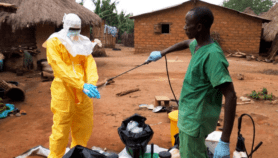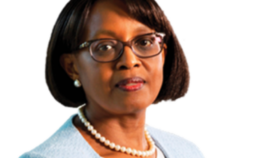By: Talent Ng’andwe
Send to a friend
The details you provide on this page will not be used to send unsolicited email, and will not be sold to a 3rd party. See privacy policy.
A US$1.5 billion scheme is set to accelerate the development and availability of new vaccines for neglected diseases.
The Advance Market Commitments for Vaccines (AMC) scheme launched last week (9 February) with a pilot project targeting vaccines against pneumoccoccal disease.
The project will subsidise poor countries’ vaccine purchases, guaranteeing the purchase and giving vaccine makers the confidence to develop new treatments and build enough production capacity to satisfy global demand.
It will run for 7–10 years and include provisions to ensure a long-term sustainable supply and price for the poorest countries.
Pneumoccoccal disease kills about 1.6 million people every year. By speeding the research and development process for vaccines, the project could save the lives of 5.4 million children in the developing world by 2030.
Executive secretary of the GAVI Alliance, Julian Lob-Levyt, said an early version of a pneumoccoccal vaccine is showing widespread success in developed countries.
But he said manufacturers lack the capacity to provide a vaccine well suited to developing countries on a large scale.
“We expect that new pneumoccoccal vaccines will reach developing countries by 2010, at least 10 years earlier than if the AMC were not available,” said Lob-Levyt.
Vernon Mwaanga, Zambia’s chief government spokesperson welcomed the scheme, which would bring relief to developing countries that cannot afford to buy expensive vaccines.
He urged the AMC to extend the programme to other diseases if this pilot proves successful.
AMC is a partnership between the Bill and Melinda Gates Foundation and five developed countries — Canada, Italy, Norway, Russia and the United Kingdom.
It will be overseen by an independent assessment committee, which will set up and monitor standards for the vaccines.
The World Health Organization will help identify promising vaccines to target, and assess their quality, safety and effectiveness. The GAVI Alliance and the World Bank will also help with the initiative’s planning and financial administration.
A total of US$1.5 billion has been committed to the project so far.












